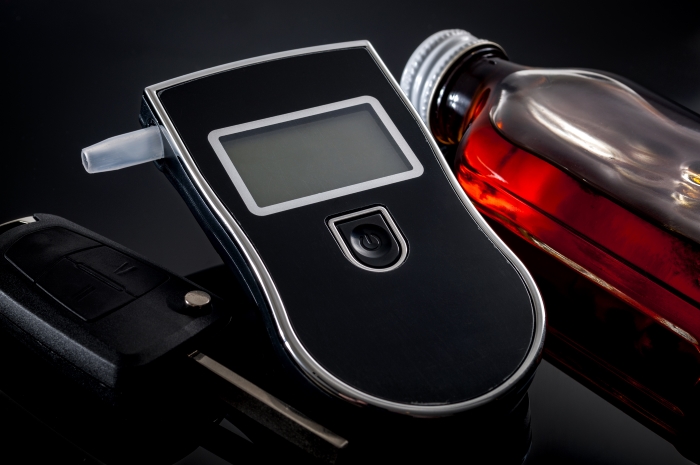A DUI charge can be a life-altering event. In Wisconsin, law enforcement heavily relies on breathalyzer tests to determine if a driver is under the influence of alcohol. Understanding how these tests work, your rights, and potential defenses is crucial if you face such a charge.
What is a Breathalyzer Test?
A breathalyzer is a device used to measure the amount of alcohol in a person’s blood by quickly analyzing a sample of their breath. The test results are typically explained as a Blood Alcohol Concentration (BAC) level. Here in Wisconsin, the legal limit for BAC is 0.08%.
Breathalyzers are typically used by police when determining whether a driver is under the influence of alcohol while operating their vehicle.
Field Sobriety Tests vs Breathalyzer Tests
Police officers tend to administer Field Sobriety Tests (FSTs) before a breathalyzer test. FSTs are a series of physical and mental exercises designed to assess a driver's impairment. While they can provide probable cause for arrest, they are less reliable than breathalyzer tests in court.
Field Sobriety Tests (FSTs)
FSTs are a series of roadside physical and mental exercises designed to assess a driver's level of impairment. Common FSTs include:
- Horizontal Gaze Nystagmus (HGN) test: This involves following an officer's penlight with one's eyes to detect involuntary eye movements.
- Walk-and-turn test: This requires the driver to walk in a straight line, heel-to-toe, and turn around to walk back.
- One-leg stand test: This involves standing on one foot for a specific period.
While FSTs can provide officers with probable cause for arrest, their reliability is subject to debate. Factors such as the officer's training, the driver's physical condition, and environmental conditions can influence the results. Additionally, the interpretation of FST performance is subjective and open to challenge in court.
Breathalyzer Tests
A breathalyzer is used to measure the amount of alcohol in a person's blood by analyzing a sample of their breath. The results are expressed as a Blood Alcohol Concentration (BAC) level. A BAC above the legal limit constitutes a DUI.
Breathalyzer tests are generally considered more reliable than FSTs as they provide objective, quantifiable evidence of intoxication. However, the accuracy of breathalyzer results can be influenced by factors such as proper calibration, operator error, and potential equipment malfunctions.
It's important to note that while you can refuse a breathalyzer test, it could result in severe penalties, including license suspension or revocation.
Can You Refuse a Breathalyzer Test in Wisconsin?
While you have the right to refuse a breathalyzer test, the consequences of doing so are severe. Refusal can result in an automatic license revocation for a minimum of one year. Additionally, the refusal can be used as evidence against you in court.
What Happens if You Fail a Breathalyzer Test?
Failing a breathalyzer test in Wisconsin typically leads to a DUI charge. The penalties for a DUI conviction can include jail time, fines, license suspension, and mandatory alcohol treatment programs. The severity of the penalties depends on factors such as your BAC level, whether there were any accidents involved, and your prior driving record.
Challenging Breathalyzer Test Results in Wisconsin
While breathalyzer tests are generally reliable, there are potential challenges. An experienced DUI attorney can explore the following:
- Machine Malfunction: Issues with the breathalyzer's calibration or maintenance can affect the accuracy of the results.
- Operator Error: Human error in administering the test can lead to inaccurate readings.
- Medical Conditions: Certain medical conditions can affect the results of a breathalyzer test.
Wisconsin’s Implied Consent Law and Breathalyzers
Wisconsin operates under a strict Implied Consent Law, which means that by driving on the state's roads, you implicitly agree to submit to chemical testing if suspected of driving under the influence (DUI). This consent extends to breath, blood, or urine tests as requested by a law enforcement officer.
The purpose of this law is to deter drunk driving by ensuring drivers understand the potential consequences of refusing a chemical test. It's a powerful tool used by law enforcement to gather evidence of intoxication.
What to Do If You’re Arrested for a DUI in Wisconsin?
If you're arrested for a DUI in Wisconsin, it's crucial to take the following steps:
- Remain Calm: Avoid making incriminating statements to the police.
- Exercise Your Rights: Know your rights and politely decline to answer questions without an attorney present.
- Contact an Attorney Immediately: Seek legal counsel as soon as possible.
Contact an Experienced Wisconsin DUI Defense Attorney | Olmr Law Office
Facing a DUI charge is a serious matter. An experienced DUI defense attorney can protect your rights, build a strong defense, and help you navigate the legal process. At Olmr Law Office, our team of dedicated attorneys has a proven track record of successfully defending clients against DUI charges. Don’t face this alone, contact Olmr Law Office today for a free consultation.




